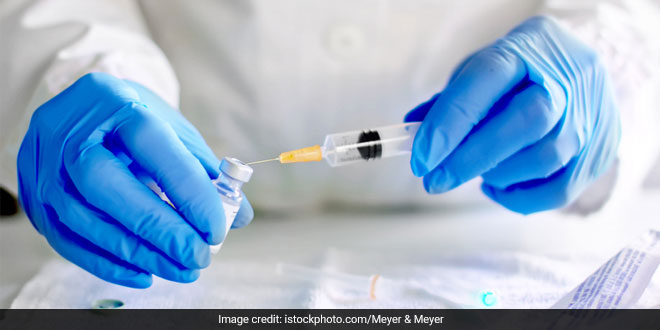Highlights
- Health Ministry, ICMR has suggested measures to increase COVID-19 testing
- States and UTs to assure all government labs have 2 RT-PCR machines
- The district hospitals too should be provided at least 1 RT-PCR machine
New Delhi: Union Health Secretary Preeti Sudan and Indian Council of Medical Research (ICMR) Director-General, Dr Balram Bhargava, have written to all states and union territories (UTs) to ramp up COVID-19 testing capacity. The letter, dated July 17, states that increasing the testing capacity may be achieved by increasing the number of labs and enhancing the existing testing capacity of the approved labs. They said that a strategy has been devised for increasing COVID-19 testing, which requires the “coordinated effort from the state government as well as various departments of Centre, and scientific bodies such as ICAR, DBT, among others under the Union government.”
Also Read: New Study Ranks Performance Of Available COVID-19 Antibody Tests
As part of short term measures, the states have been suggested to provide the RT-PCR machines available with the research and educational institutions, which come under the state and Centre governments, to be ‘deployed temporarily’ in the district hospitals and testing labs, so that additional machines are available. The state governments have been asked to prepare a roadmap for the redeployment while factoring the manpower requirements.
There are 281 government medical colleges approved by MCI and at present 263 have been approved for testing by the ICMR. The remaining government medical colleges can also be approved for testing by making available 2 RT-PCR machines other ancillary equipment and trained staff. There are 261 private medical colleges recognised by MCI, out of these 76 have been approved for testing and another 185, with 2 RT-PCR machines can be added to the testing network, the letter stated, adding that the states should immediately send the request for their registration as per the criteria of ICMR.
The states, UTs have also been asked to urgently procure rapid antigen kits to enhance their testing potential and the addition of private diagnostic labs with 2 RT-PCR machines each will also enhance the testing capacity by 48,000 tests per day.
Further, speaking about the measures to be taken in the medium-term, the states and UTs have been asked to assure that all government labs have 2 RT-PCR machines and one automated RNA extraction machine, to enhance testing capacity.
The district hospitals too should be provided with BSL-II facility with at least 1 RT-PCR machine.
Out of 391 government labs, there are 70 labs with automated RNA extraction platforms. ICMR is procuring 125 automated RNA extraction machines. If one automated RNA extraction is provided to every government lab by the state government testing capacity will increase by 90,000 tests per day. The state governments may also procure these machines on their own from Government e-Marketplace (GeM), the letter added.
As per the ICMR, 2,56,039 COVID-19 tests were conducted on July 19 across the country, taking the total number of samples tested till Sunday to 1,40,47,908.
NDTV – Dettol Banega Swasth India campaign is an extension of the five-year-old Banega Swachh India initiative helmed by Campaign Ambassador Amitabh Bachchan. It aims to spread awareness about critical health issues facing the country. In wake of the current COVID-19 pandemic, the need for WASH (Water, Sanitation and Hygiene) is reaffirmed as handwashing is one of the ways to prevent Coronavirus infection and other diseases. The campaign highlights the importance of nutrition and healthcare for women and children to prevent maternal and child mortality, fight malnutrition, stunting, wasting, anaemia and disease prevention through vaccines. Importance of programmes like Public Distribution System (PDS), Mid-day Meal Scheme, POSHAN Abhiyan and the role of Aganwadis and ASHA workers are also covered. Only a Swachh or clean India where toilets are used and open defecation free (ODF) status achieved as part of the Swachh Bharat Abhiyan launched by Prime Minister Narendra Modi in 2014, can eradicate diseases like diahorrea and become a Swasth or healthy India. The campaign will continue to cover issues like air pollution, waste management, plastic ban, manual scavenging and sanitation workers and menstrual hygiene.
[corona_data_new]





























